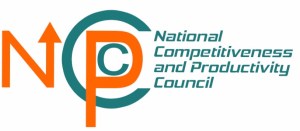
Saint Lucia is characterized by a youthful population. This means that thousands of young persons are entering the labour force yearly. As such, job opportunities for young persons are very limited and this has resulted in a youth unemployment rate of 38.4% in 2016. The answer to this crisis lies within entrepreneurship. Young persons are usually creative in their ways of thinking and solving problems. As such, this creativity can be used to create business opportunities for themselves as well as creating jobs for other young persons.
In order to start and operate a business, funding is essential. Securing financing, however, in this tough economic climate can be challenging due to the high risk levels involved in starting and operating a business. More importantly, entrepreneurs are required to have collateral in order to borrow. This, while proving to be problematic for potential young entrepreneurs should not be a deterrent.
Many successful business owners have started their business from scratch with little funding. For example, British business man- Chris Dawson has shown that selling goods from a suitcase can lead to big things, founding The Range (homeware) in 1988. His chain of discount stores made £88 million profit in 2014. Entrepreneurs are usually creative in nature and can come up with innovative ways of funding their ventures.
Young entrepreneurs will have great business ideas but because of lack of capital are discouraged to execute the plan. It is important to note that if the business idea is not comprehensive and well thought out, no amount of money will turn it into a success. Therefore, if an entrepreneur has a business idea but may have little money, that should not be a constraint to starting the business. This may require long days with little sleep. However, those who want it bad enough will make it happen.
The following are some tips on how to start your business with little funds:
Tell everyone about the business. Inform everyone that you know about your business including friends, family, business contacts and past colleagues. Call, send emails, attend free networking sessions also make the business known on social media. Friends and family can help you spread the word, and past colleagues can introduce your company to their professional contacts as well. This type of grass roots marketing can introduce your business to a much larger audience.
Get ready to work hard. When you are starting a business with little to no capital, you must be prepared to dedicate everything that you have into making the business a success. This involves cold calling, handling customer support, dealing with billing and accounting and other parts of the business. You may have to wear many hearts in order to start off the business.
Look for strategic investors. Strategic investors are the best type of investors you could find for your business because their interests align with your start up. In assisting your business, there is some benefit to their business. For example, a hair dresser with a huge salon may give a nail technician some space to set up, either at a concessionary rate or free of charge. This is a way of marketing the hair salon to the clients of the nail technician and thus helping to expand the business.
Start at home. Bill Gates successfully started his business in his garage. Depending on the line of business, a great way to save money is to run your business in a location that will not require you to pay extra rent. It will not look glamorous but will help you to get the job done without spending extra money. In recent years, the Taiwanese government has been encouraging entrepreneurs to start businesses at home. This is a way of helping them decrease on their overheard costs which ensures the survival of the start-up business.
Start part- time. If you will need a steady income to meet your financial obligations, it is therefore advisable to start the business as a part time venture. Do not quit the job until the part time business has a steady flow of customers and profits.
Although it is true that generous funding, a team of investors, or family with deep pockets can make starting a business venture easier, not having money should not be a deterrent. If you are confident that you have a product or service people want, don’t allow the lack of money to dissuade you from your business goals. By pivoting, grinding it out, getting creative, and differentiating yourself, you can bootstrap your way to a successful business.






 Through the work of the NCPC, the Government of St. Lucia established the PROCOM Challenge. The Challenge, (grant-based) will be accepting applications from April 18th to May 27th, 2016 and is poised to be a catalyst that specifically co-finances the private sector to implement solutions or initiatives that either enhances productivity and competitiveness within the Saint Lucian economy.
Through the work of the NCPC, the Government of St. Lucia established the PROCOM Challenge. The Challenge, (grant-based) will be accepting applications from April 18th to May 27th, 2016 and is poised to be a catalyst that specifically co-finances the private sector to implement solutions or initiatives that either enhances productivity and competitiveness within the Saint Lucian economy.



